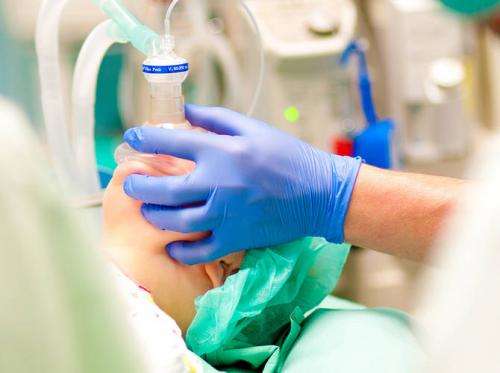Liquorice alleviates troublesome symptoms following intubation

In Traditional Chinese Medicine (TCM), liquorice is regarded as a "panacea". A recent study by the University Department of Anaesthetics, General Intensive Care Medicine and Pain Therapy at the MedUni Vienna has now, for the first time, scientifically confirmed the healing properties of this natural substance.
In their study, researchers investigated patients who require a particularly thick tube (known as a double-lumen tube) following lung surgery and who consequently suffer frequent sore throats, hoarseness and coughs. The prescription of liquorice markedly reduced the frequency of post-operative symptoms. Even more importantly, patients were extremely happy and complained of significantly fewer side effects associated with anaesthesia, such as sore throats, coughs and hoarseness.
Study leader Kurt Rützler from the University Department of Anaesthetics, General Intensive Care Medicine and Pain Therapy at the MedUni Vienna cites another important advantage: "The side effects that normally occur are not only subjectively unpleasant for patients, but they can also have a negative impact on the success of their surgery. If a patient develops a cough after a lung operation with severe pain leading to reduced inspiration and expiration, this can cause an entire section of the lung to collapse."
Inexpensive medicine available without a prescription
As a result of the study, which has just been published in the science journal Anesthesia & Analgesia, liquorice is already being offered to all pre-operative patients at three European hospitals. One of the key advantages of liquorice lies in how simple it is to use. Liquorice is available in its pure form without a prescription from any pharmacy. "Patients can however also buy liquorice sticks or liquorice lozenges and achieve very similar beneficial effects to pure liquorice," says Rützler.
Further possible medical uses for liquorice being researched
Exactly how liquorice works is not yet fully understood. The team of researchers at the MedUni Vienna has managed to identify 17 sub-substances in liquorice, however. Some of these are believed in TCM to have particular effects. Researchers are now working on investigating these TCM beliefs on a more scientific basis. According to Rützler, of particular importance in this context is liquorice's anti-inflammatory effect and its positive impact on local wound healing, for example in maxillofacial surgery.
More information: Ruetzler, K. et al. A Randomized, Double-Blind Comparison of Licorice Versus Sugar-Water Gargle for Prevention of Postoperative Sore Throat and Postextubation Coughing, Anesthesia & Analgesia. DOI: 10.1213/ANE.0b013e318299a650


















